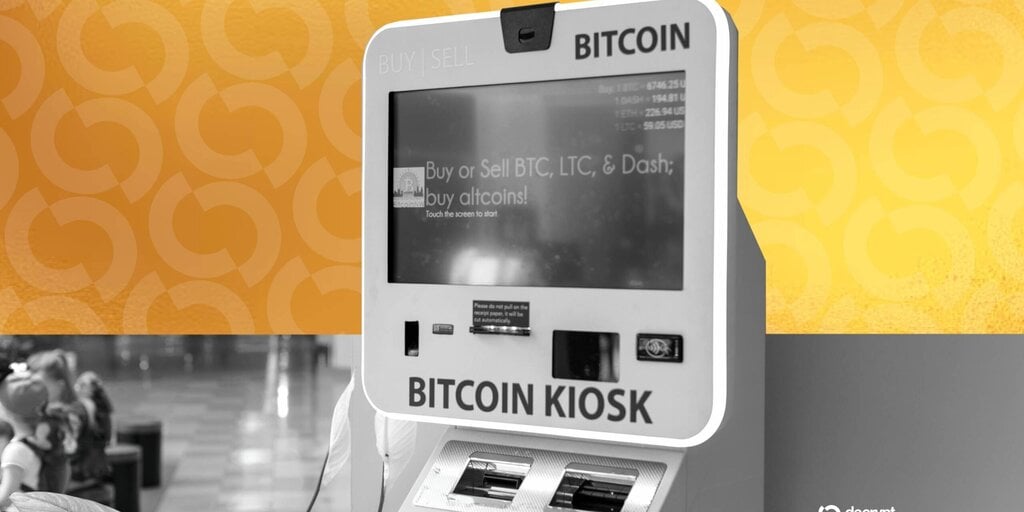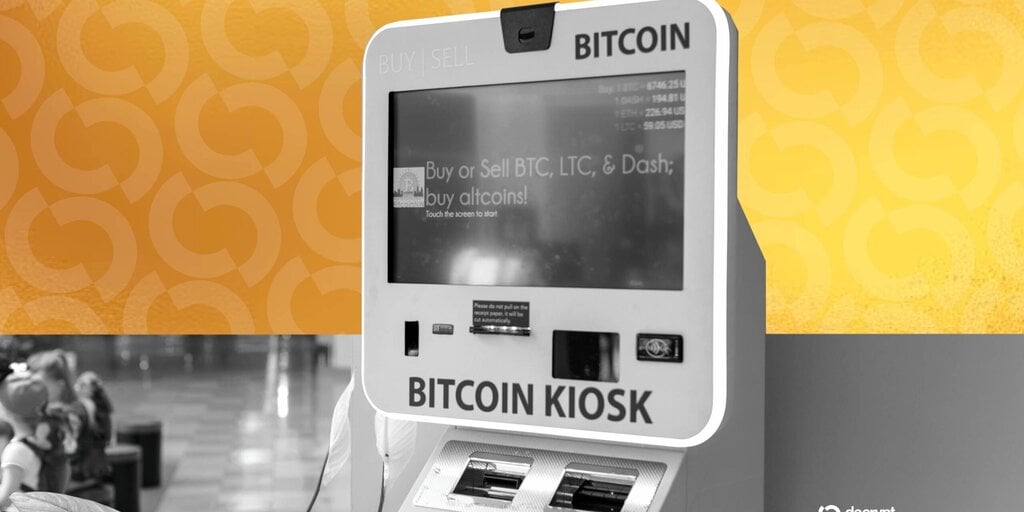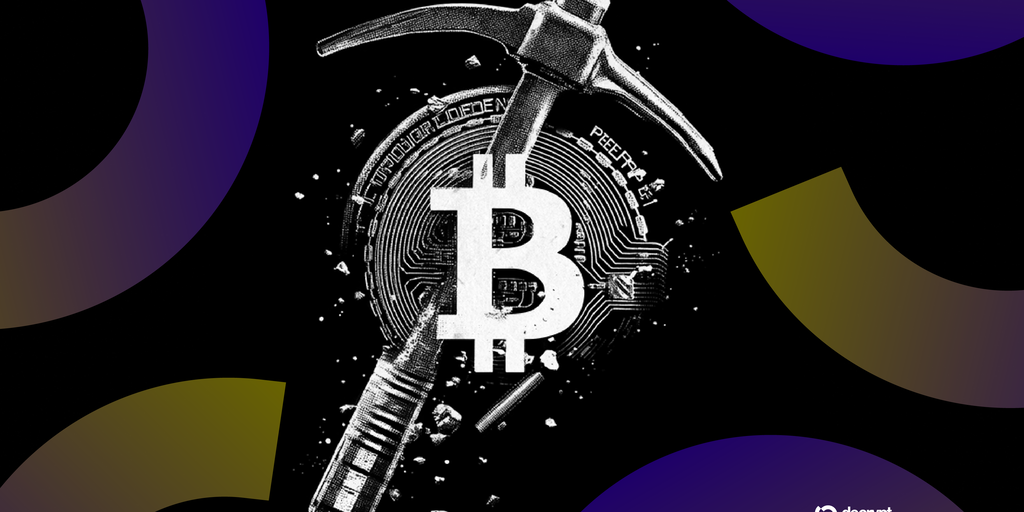
In brief
- FinCEN has issued an urgent alert flagging fraud schemes involving crypto ATMs.
- Elderly victims lose big through tech support and imposter scams, often guided to ATMs by phone.
- Many kiosk operators lack registration and AML controls, enabling anonymity, high fees, and structured transactions.
The Treasury Department’s Financial Crimes Enforcement Network issued an urgent alert Monday addressing fraudulent schemes exploiting crypto kiosks, with reported victim losses jumping 31 percent to nearly $247 million in 2024.
FinCEN’s latest advisory reveals that complaints involving “convertible virtual currency kiosks,” also called Bitcoin ATMs, skyrocketed 99% last year, with more than 10,956 incidents reported to the FBI’s “Internet Crime Complaint Center.”
The agency warned financial institutions to heighten surveillance of suspicious activity around these cash-to-crypto machines, which have proliferated from roughly 4,100 units nationwide in 2019 to over 37,000 today.
“Criminals are relentless in their efforts to steal money from victims, and they’ve learned to exploit innovative technologies like CVC kiosks,” said FinCEN Director Andrea Gacki in Monday’s announcement.
The notice exposes widespread regulatory failures among kiosk operators, many of whom fail to register as required “money services businesses” or implement basic “anti-money laundering” controls.
Federal authorities detailed how non-compliant operators advertise anonymity, charge excessive fees up to 25%, and allow customers to conduct multiple transactions without identification requirements.
Elderly victims most affected
The agency found that elderly victims bear the brunt of these schemes, with adults over 60 accounting for more than two-thirds of all crypto kiosk fraud losses, despite being among the least likely to use crypto services.
Scammers often convince victims to drain retirement accounts and convert funds into crypto, exploiting the irreversible nature of blockchain transactions.
Tech support scammers, responsible for nearly half of all kiosk fraud, typically initiate contact through fake pop-ups or calls and guide victims step-by-step to complete payments at nearby machines.
The Drug Enforcement Administration (DEA) reports that criminal groups like “Cartel Jalisco Nueva Generación” are using crypto kiosks to launder money across borders, with Chicago, home to around 1,167 machines, becoming a key hotspot attracting users from other states.
FinCEN provided specific warning signs for financial institutions, including large cash withdrawals for crypto kiosks, elderly clients with no crypto history making sizable transactions, and blockchain evidence linking funds to criminal wallets.
The advisory noted that once criminals receive crypto through these kiosks, they typically convert proceeds into stablecoins and use sophisticated “chain-hopping” techniques across multiple blockchains to obscure transaction trails.
Chain-hopping is the process of moving crypto across multiple blockchains to obscure its origin and make tracing by authorities more difficult.
“The widespread non-compliance among kiosk operators, including failure to register as MSBs and implement robust AML/CFT controls, is a critical concern,” HashKey Group senior analyst Jade Shi told Decrypt.
Shi said crypto ATMs were “designed with good intentions,” but has called for stricter oversight to “curb” criminal activity.
Crypto ATMs face global crackdown
Regulators worldwide are tightening controls on crypto kiosks.
New Zealand announced plans to ban crypto ATMs entirely, while Australia’s financial watchdog has capped transactions at $5,000 and revoked licenses for non-compliant operators.
Washington state’s Spokane became the first U.S. city to prohibit the machines altogether following FBI data showing $5.6 billion in nationwide kiosk-related fraud losses.
Daily Debrief Newsletter
Start every day with the top news stories right now, plus original features, a podcast, videos and more.




